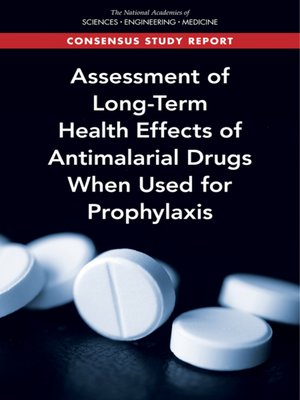Assessment of Long-Term Health Effects of Antimalarial Drugs When Used for Prophylaxis
ebook
By National Academies of Sciences, Engineering, and Medicine

Sign up to save your library
With an OverDrive account, you can save your favorite libraries for at-a-glance information about availability. Find out more about OverDrive accounts.
Find this title in Libby, the library reading app by OverDrive.



Search for a digital library with this title
Title found at these libraries:
| Library Name | Distance |
|---|---|
| Loading... |
Among the many who serve in the United States Armed Forces and who are deployed to distant locations around the world, myriad health threats are encountered. In addition to those associated with the disruption of their home life and potential for combat, they may face distinctive disease threats that are specific to the locations to which they are deployed. U.S. forces have been deployed many times over the years to areas in which malaria is endemic, including in parts of Afghanistan and Iraq. Department of Defense (DoD) policy requires that antimalarial drugs be issued and regimens adhered to for deployments to malaria-endemic areas. Policies directing which should be used as first and as second-line agents have evolved over time based on new data regarding adverse events or precautions for specific underlying health conditions, areas of deployment, and other operational factors
At the request of the Veterans Administration, Assessment of Long-Term Health Effects of Antimalarial Drugs When Used for Prophylaxis assesses the scientific evidence regarding the potential for long-term health effects resulting from the use of antimalarial drugs that were approved by FDA or used by U.S. service members for malaria prophylaxis, with a focus on mefloquine, tafenoquine, and other antimalarial drugs that have been used by DoD in the past 25 years. This report offers conclusions based on available evidence regarding associations of persistent or latent adverse events.







